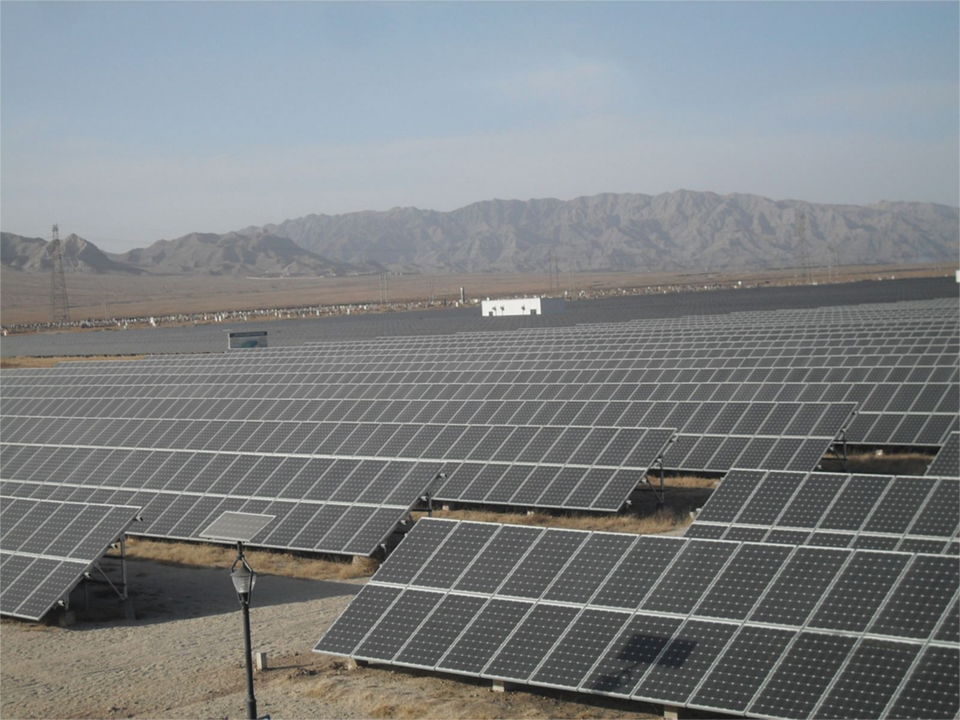

100MW Ningxia Shizuishan Solar Power Plant—China.
The year 2016 just ended was the hottest on record. So was 2015. And 2014 before that. Each year, new world records are being set as a blanket of CO2 in the atmosphere, caused by the burning of fossil fuels, warms the planet even faster than scientists had predicted. In the U.S., the heat last year was surpassed only by the record-breaking year of 2012.
So what are the powers-that-be in the richest country on earth doing about this monumental crisis? Well, they’ve just succeeded in getting one of their right-wing billionaire buddies elected president, and he’s picked a cabinet that abounds in fellow climate deniers — very conveniently, given their connections to the coal and oil industries.
There’s Rex Tillerson, the outgoing chair of ExxonMobil, Trump’s pick for secretary of State. Rick Perry, a former governor of oil-rich Texas, for secretary of Energy. And there’s Scott Pruitt, a former Oklahoma attorney general who has been waging a legal battle against the Environmental Protection Agency’s Clean Power Plan, which would curb greenhouse-gas emissions from coal-fired power plants. What job is Pruitt getting? Of course — the EPA.
Scientists, environmentalists and just people thinking about the future are tearing their hair out. What can they do?
The answer: Fight like hell against this putrid system that is destroying the world. Help build a revolutionary mass movement against capitalism and its evils, from racism, sexism, lesbian, gay, bisexual, transgender and queer oppression to the exploitation of all workers and the destruction of the environment, all for profit.
China to spend $360 billion on renewables
It’s instructive to look at what China is doing about climate change. It’s still a developing country, needing to feed and house 1.3 billion people on the same amount of land area as the U.S.
But China’s National Energy Administration announced on Jan. 5 that the country will spend another $360 billion — more than a third of a trillion dollars — on renewable energy sources like solar and wind by 2020. China is already the largest producer of solar panels in the world.
Environmentalists around the world are hailing this decision, noting that when the Chinese government makes such an announcement, it is not just an empty promise, a political ploy or a wish list. It means that economic planners have already laid the groundwork and figured out the details of how to finance such a huge project and how to develop the infrastructure to deliver the power to where it is needed.
At the same time, China is in the middle of a major campaign to downsize its coal, steel and cement industries. It’s called supply-side structural reform. After several decades of rapid industrialization, China’s growth rate has slowed in recent years.
Industrialization brought serious pollution. And there is now a surplus of housing in some areas, as well as stockpiles of such basic materials as steel and cement. Improvements in technology have also caused some industries to become redundant.
In a capitalist society like the United States, redundancy in the productive forces causes the big investors to just walk away from the problem, leaving a Rust Belt (aka deindustrialization) behind. And some of the “advisers” to China from the capitalist world who push for more market reforms have urged them to do just that, especially because the industries involved are predominantly state-owned enterprises.
What about the miners? The steelworkers? Forget about them. Let the market sort everything out.
But it appears that the Communist Party and the Chinese government are not following such advice. Under supply-side structural reform, redundant industries are being shut down under a plan — yes, their system allows for a comprehensive plan for economic development — in which the full weight of the government insists there be job training and an income for the workers affected until they get other employment. At the same time, the overall plan is creating new industries — like the state investment in solar and wind power, which alone will open up 13 million new jobs.
It is possible to reorganize human life and economic activity to be sustainable on this beautiful, unique planet. But to get there, we must pull down capitalism and build socialism.
Trump’s 2024 campaign promised not to cut Social Security and proposed not to tax benefits.…
The New York Times broke the news on March 20, purportedly based on information leaked…
The following statement was published on March 21, 2025, on Resistance News Network. Forty former…
Venezuela: President Maduro demands respect for national identity and an end to the persecution of…
Por invitado Resumen Latinoamericano on 22 marzo, TeleSUR, Resumen Latinoamericano, 22 de marzo de 2025.…
New York City A rally and march on Billionaires’ Row has been called for 5…